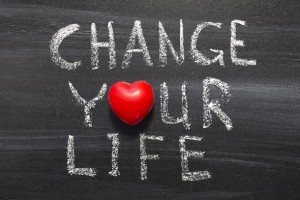When people think about an ‘Eating Disorder’, they often make the presumption that this means Anorexia. In particular any issues around eating are linked to thinness and diets of some kind. You will often hear people talking about ‘being good’ or cutting back, going on a diet, or maybe about how much weight they have to lose.
Society often collides with the idea of ‘thinness’ as attractive and as a result people can put immense pressure on themselves to lose weight and to reach certain targets etc. This often comes in the way of exercise; strict diets, counting calories etc and it can result in an eating disorder developing. An eating disorder that is in many ways socially acceptable. The desire to lose weight.
Anorexia is a life threatening illness and it does kill people. It can be thought of as slow suicide. The damage it puts on peoples bodies is huge, and the impact is has on organs and the heart is extreme. There is a lot of help available for people living with anorexia, and a lot of treatment out there. It focuses on helping people to develop a more healthy relationship with food, and on nurturing their bodies and taking care of their health and emotional well-being.
But what about the other eating disorders that exist?? Binge eating, compulsive overeating and bulimia? These are often the hidden, and more secretive eating disorders, and the ones that society doesn’t focus on or take time to think about. But they are all in fact just as life threatening, just as dangerous and they do just as much damage to a person’s emotional well-being. More often then not all of the eating disorders out there can overlap. But there is rarely enough time and attention given to those who eat, can’t stop eating, and then continue to eat.
Shame comes hand in hand with this type of relationship with food. People often feel that they don’t have an eating disorder, that they are not struggling with food, but instead they feel that they are ‘lazy’, ‘disgusting’, ‘ greedy’, ‘fat’ etc. These are all highly critical and punitive words, but people often do apply them to themselves and are very hard on themselves. It is often very difficult for them to admit and acknowledge that they have a problem and that they need help. In turn they spend time beating themselves up, and as a result eat more food.
Food is used as a form of comfort. It is also used to suppress feelings and emotions. Sometimes people develop bulimia and throw up the food. Part of this is around not wanting to gain weight and concerns around weight, but it is also a way of hurting themselves and feeling as though they have some kind of control. Other people don’t have bulimia but they still have disordered eating. They may eat constantly throughout the day, or continually overeat, or they may binge eat, or perhaps eat in secret. Whatever the pattern is, the food is being used to deal with emotions and issues in their life.
A disordered relationship with food is often about filling voids in people’s lives. Perhaps they have been dealing with something like a major loss, a bereavement, or divorce for example. Or perhaps they are under immense stress with work, or family issues. Often there are a lot of things happening within the relationships in their lives – either with their partners, parents, children etc. A strain on these relationships may leave people feeling isolated and alone. Food then becomes their companion, and they turn to it for friendship.
An eating disorder can be thought of like a best friend and a worst enemy. Perhaps someone has been using food for years as a companion. When they are stressed,
upset, anxious, on edge, they may eat and eat and then beat themselves up about eating, only to then eat again. To someone who has never had an issue with food this wont make logical sense. But to someone who is addicted to food, this is the only pattern they know. Saying goodbye to that best friend can be terrifying.
Here at your counselling service we work hard, with all types of eating disorders and issues around food. We encourage people to develop a ‘healthy voice’. This means that instead of listening to the eating disorder voice that tells them to eat, or not eat, that they are fat, they are worthless etc they then begin to listen to a healthy voice that tells them they are actually worth more and deserve more. For example this means that when they feel like eating because they are upset, they work hard to find other ways to manage their distress/anxiety. We encourage them to work towards valuing who they are, being kind to themselves, not eating on their feelings and as a result emotionally settling down in themselves.
There is a whole toolbox of therapeutic tools that people can use to overcome disordered eating, and therapy is a big part of that. The important thing to remember is that overcoming an eating disorder is not something that someone can do on their own. And while the support of family and friends is important, a therapist is needed to help someone to unpack what they are feeling and to try and change their destructive behavioural patterns. Here at your counselling service we understand and appreciate just how hard it is to put food down. So please pick up the phone (07590 663938) or e mail info@yourcounsellingservice.co.uk We are here to help.



